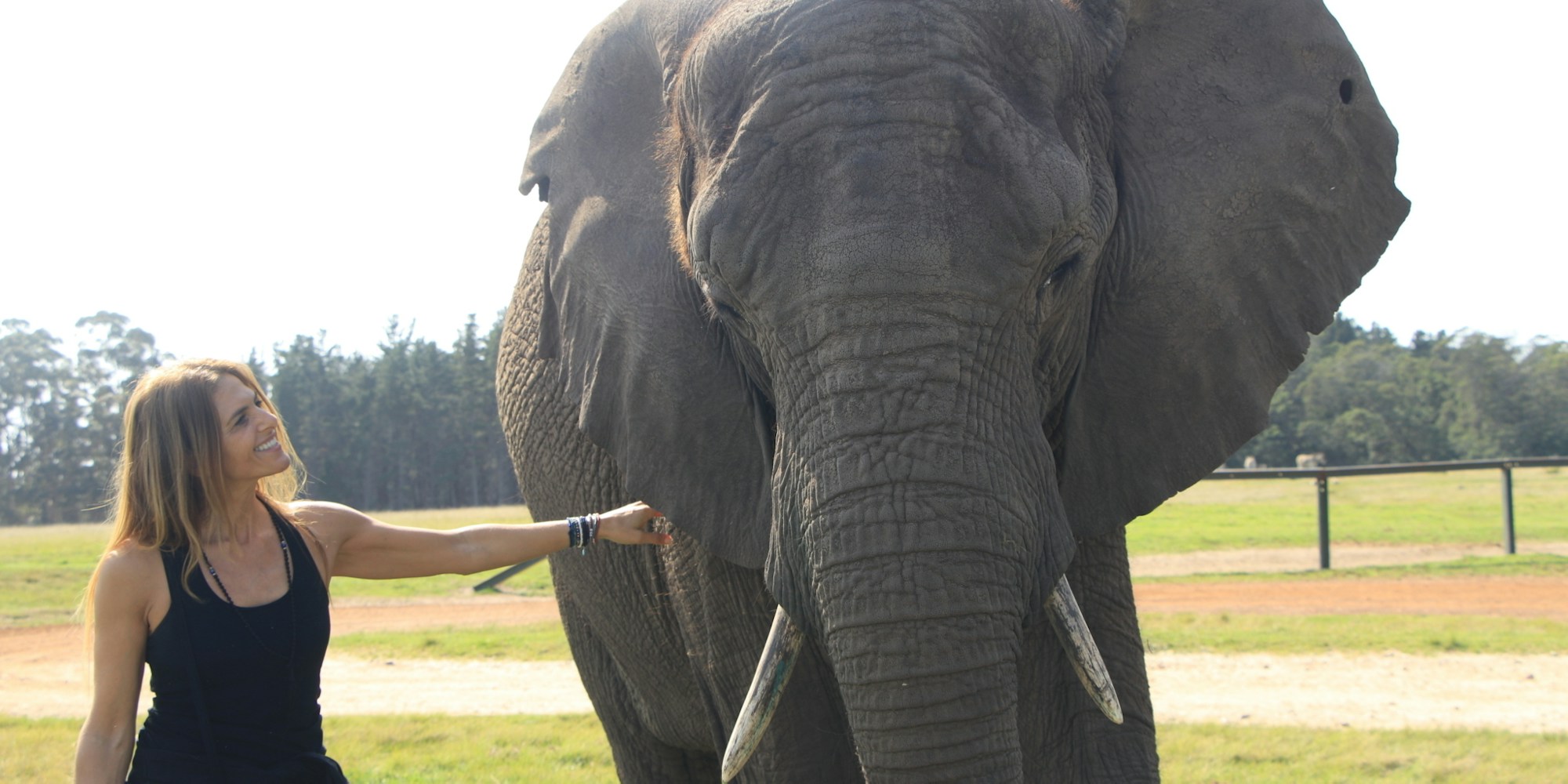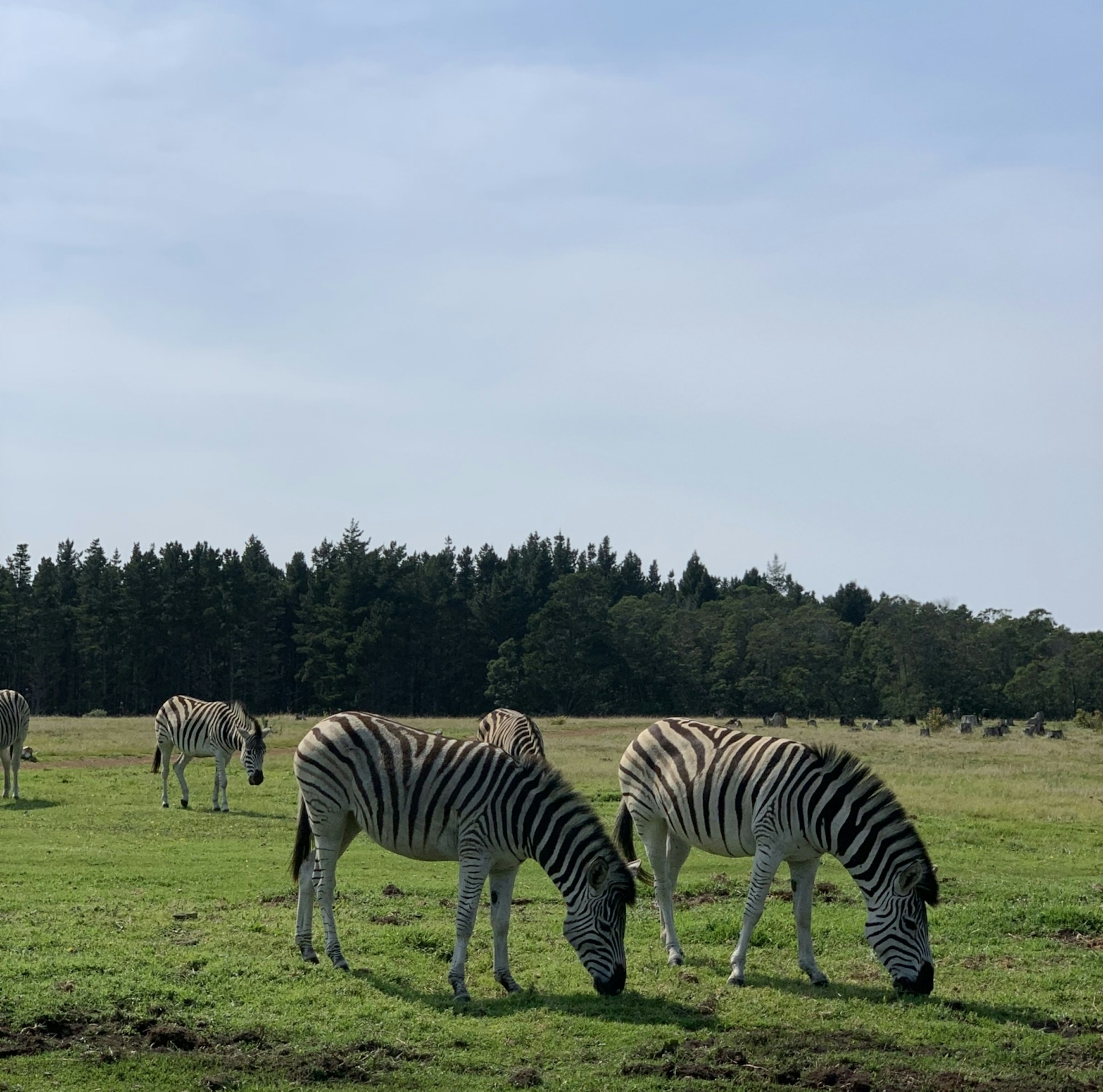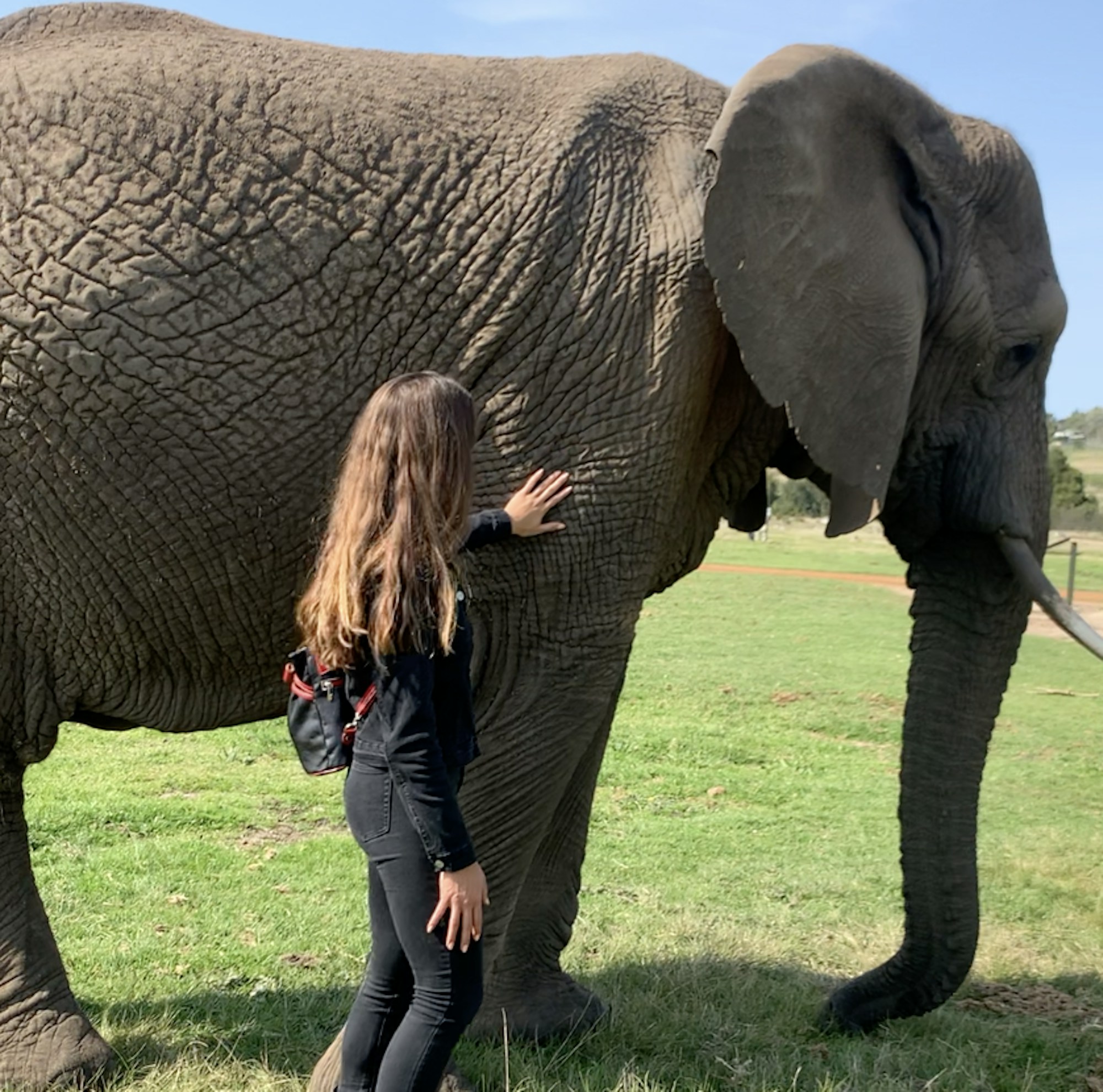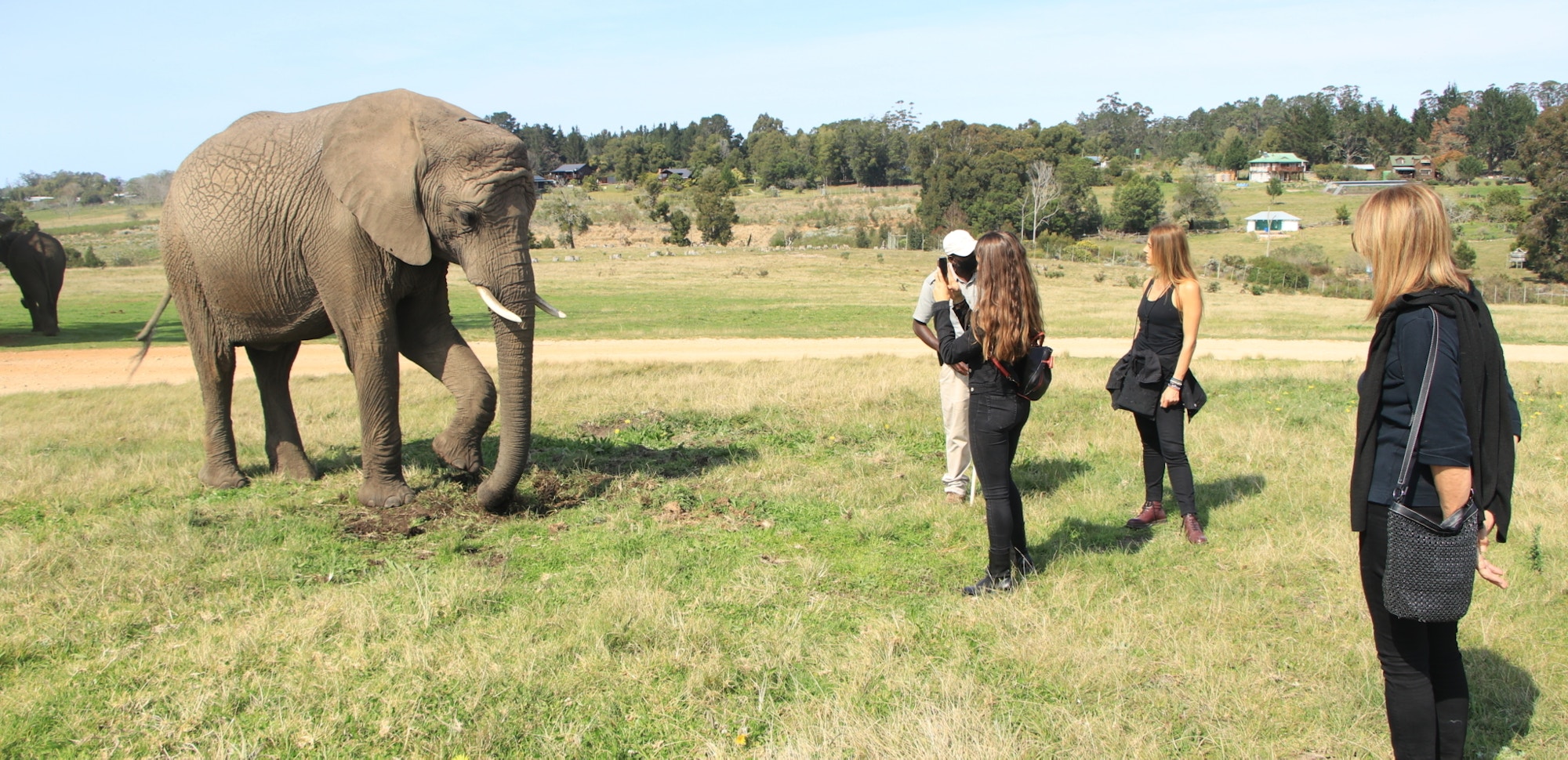For the last few years I had been looking for any opportunity to visit the gentle giants of the Garden Route. On my last roadtrip, I was able to tick it off my bucket list as I visited the Knysna Elephant Park.
To give a bit of background, the Knysna Elephant Park was founded with the purpose to rescue, rehabilitate and care for elephants. The sanctuary homes the largest domestic matriarchal elephant herd in the country (a niche, but incredible, undertaking!). With that in mind, since its inception in 1994, the park has cared for and raised over 40 elephants!
Over time, it has also grown into a place of learning too, with a research and volunteer team contributing to elephant knowledge and management. It’s safe to say that the staff have the animals’ interests at heart and as their main priority. This reflects in how they structure the experiences. Guests are welcome to get up close and personal with the elephants, but on the elephant terms.
For instance, we tried the Nature Walk, the latest experience on offer that is deemed responsible, eco-friendly and socially distanced. Guests are given a bucket of chopped fruit (not for personal consumption) and transported to the elephants. Apart from a single standing fence, that allows the elephants to line-up calmly, you are standing freely in an open field with the world’s largest mammals. Here you have the opportunity to feed the gentle giants as their trunks snake around you sniffing for the freshly cut food. Once everyone’s rations have been dished out, the elephants carry on their own business. Some take mud baths (including some poorly-located guests), others walk off their meal, and the remaining social ones might try strike up a conversation with you.
Each group are allocated a guide to walk them through the field and to introduce them to each elephant. In between meeting the oldest matriarch of the herd and the youngest princess of the pack, you’ll get to hear all kinds of amazing stories, and learn about the elephants’ origins, history and health.
For those that love time outside, you are able to stay for as long as you like, enjoying the African sun and Elephant’s shade.
For those that prefer a more active form of engagement, the Elephant Walk allows you to ‘get your steps’ as you join the herd on their daily walks (*jog, you’re walking at the elephants’ pace) through the forest. Although we didn’t get to try this activity ourselves, I would imagine it’s quite incredible. Apart from the beautiful company, your journey will also be scenic with panoramic views of the Outeniqua Mountains. Be sure to book your spot as there are only 2 walks per day, each 45min long. The early risers are able to join the Morning Walk and enjoy a breakfast at the Indlovu Cafe after.
All in all, this sanctuary allows you to enjoy the nature and natural life of the Garden Route. It’s insightful and informative, with a great cause. For families, this is a great educational activity too and easier on the wallet, as kids under 5 are granted free entrance! SA residents, students and pensioners can also receive activity discounts!
To give you a taste of the incredible design and history of these animals, here are some of our favorite fun facts about the Africa Elephant:
- It is the world’s largest land mammal
At birth, calves can weigh 120kg and only reach their full size around 35 years of age - The more their ears flap, the hotter the elephant is.
The large surface area allows the elephant to pump blood around their ears to cool down. - The African Elephant has ears that mimic its continent’s shape
- Nature’s straws: elephants’ trunks can suck up to 8 liters of water (to drink), but can also be used as a snorkel when swimming
- Mud masks: to keep their skin clean, and to protect themselves from sunburn, elephants take regular dust and mud baths.
- Living to eat and eating to live
In order to support their size, elephants spend up to 75% of their day eating - Sending good vibrations: while they can communicate through sounds, body language, touch and scent, elephants also use seismic signals; they can create vibrations in the ground, that are detected through their bones, to communicate with each other
- Female elephants (also called “cows”) have the longest gestation period of all mammals, lasting as long as 23 months!
- Baby Elephants ("calves") are able to stand within 20 min of being born and can walk within an hour. This aids the herd in migrating to search for food and water
- Survival of the Unfitest: around 90% of African elephants have been wiped out in the past century - largely due to the ivory trade. This means that the majority of surviving African elephants are that of the ‘weaker’ pool. Their smaller tusks, where in natural would have been a weakness in survival, saved them from being hunted.























